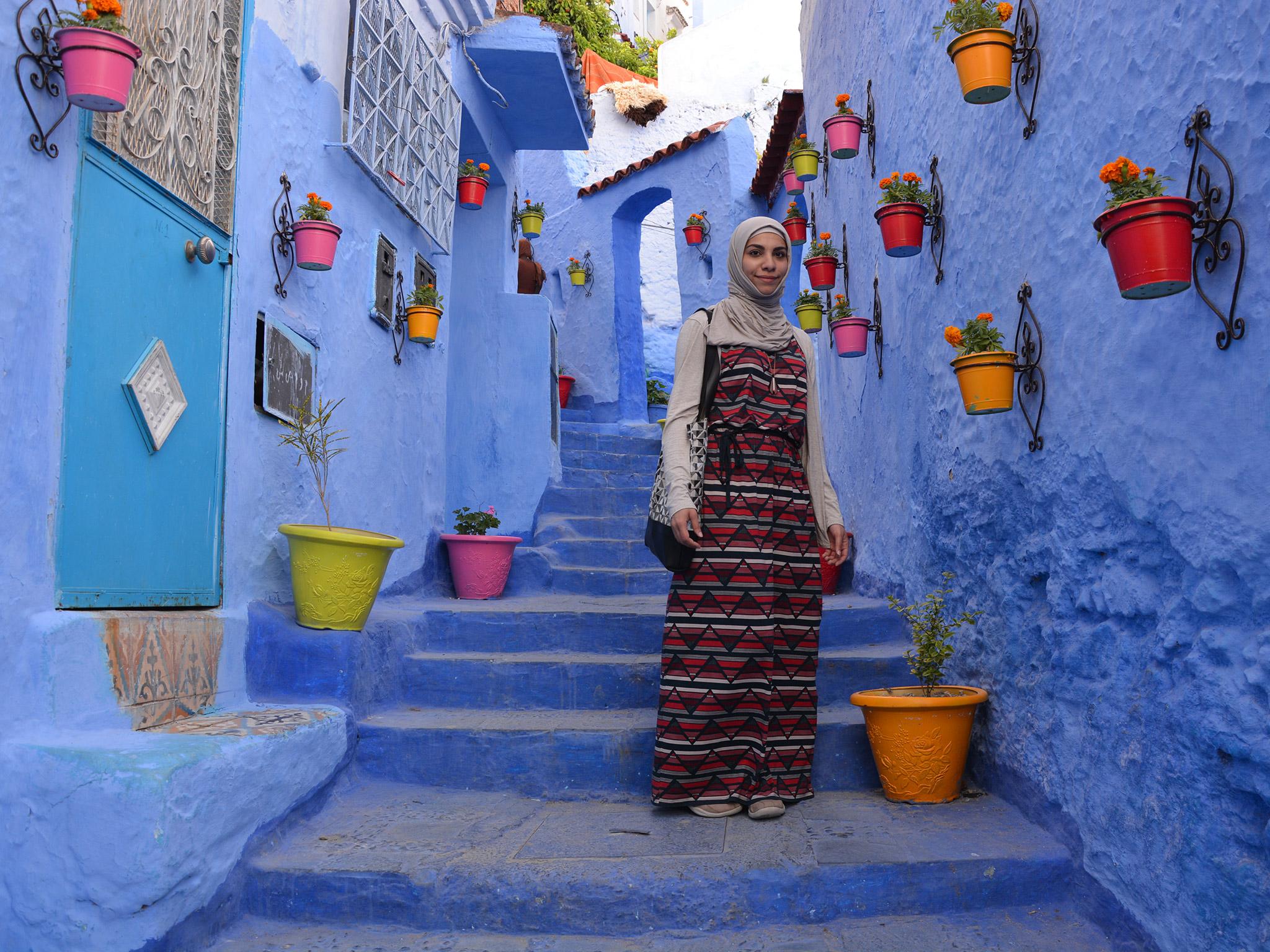What it's like to be a 'hijabi travel blogger' in a climate of Islamophobia
Esra Alhamal isn't letting prejudice stop her from exploring the world

Your support helps us to tell the story
From reproductive rights to climate change to Big Tech, The Independent is on the ground when the story is developing. Whether it's investigating the financials of Elon Musk's pro-Trump PAC or producing our latest documentary, 'The A Word', which shines a light on the American women fighting for reproductive rights, we know how important it is to parse out the facts from the messaging.
At such a critical moment in US history, we need reporters on the ground. Your donation allows us to keep sending journalists to speak to both sides of the story.
The Independent is trusted by Americans across the entire political spectrum. And unlike many other quality news outlets, we choose not to lock Americans out of our reporting and analysis with paywalls. We believe quality journalism should be available to everyone, paid for by those who can afford it.
Your support makes all the difference.“When you wear a scarf you are a visual representation of Islam,” says Saudi travel blogger Esra Alhamal, who wears the Islamic headscarf, the hijab, and identifies as a “hijabi”. “You need to be even nicer than your usual self just to give an even nicer message. That can be exhausting sometimes.”
Alhamal presents the travel segment on The Lifestyle Show, which airs on English-language Shia Islamic channel Ahlulbayt TV. Born in Saudi Arabia, the 29-year-old PhD student also writes the travel blog DesignerEsra.com and has lived in the UK for seven years. But due to political tensions, Alhamal feels she is seen as a representative for Muslims when she travels – whether she likes it or not.
The current climate means Alhamal often feels forced to consider her destinations in a way that non-Islamic travellers don’t need to. When headed to countries where she fears she may not be safe, Alhamal will pack hats and head wraps to cover her hair so she is less visibly Muslim.
Yet Alhamal says only a handful of countries make her feel nervous about travelling, and she takes a “go and find out approach” to the majority of destinations. Mostly, she has been pleasantly surprised by how welcoming locals are in non-Muslim countries.
For example, owing to the spike in Islamophobia in France following attacks carried out by Isis in Paris, she said she feared she might feel uneasy in the French capital.
“I was worried because I went two weeks after an attack. I thought, ‘I hope people wouldn’t get upset when they see me.’ But I was there for a day-and-a-half and no one cared. Everyone was normal and smiling at me - it was totally fine.”
The US, however, is another matter. Following the “travel ban” President Donald Trump imposed on citizens of Muslim-majority nations travelling to the US, she is reluctant to revisit the country, despite her native Saudi Arabia not being on the list. Since the ban was introduced reports have emerged of travellers, including US citizens, being questioned about their religion at airports, including Muhammad Ali Jr, the son of the late boxer.
“I’m sure it would be fine but I disagree with everything that’s happening there so I don't think I'll go there," she says.
Another nation on her no-go list is Russia, due to fears of Islamophobic sentiment. Alhamal says she avoids the country, despite being hungry to experience the nation's varied culture.
Alhamal, who has visited 21 countries – including solo trips to Qatar, Iran, Spain, Sri Lanka, Norway and Croatia – says sometimes her hijab also poses logistical issues.
“Sri Lanka was amazing. No one made me feel different, except when I wanted to go temples and couldn't go in because of my scarf,” she says. “But that’s because even men have to uncover their heads to go in as a sign of respect.
“I’m asking you to respect me too, but it wouldn’t be fair if I’m upset about that. I can't expect people to change their rules for me. You have to be tolerant.”
On her ‘role’ as a reluctant representative of Islam abroad, she says: “I don’t like to explain myself to people all the time, and I’m not going to apologise for the world's problems. I’m going to lead by example. I’m going to have fun and enjoy myself and see the world.”
Join our commenting forum
Join thought-provoking conversations, follow other Independent readers and see their replies
Comments